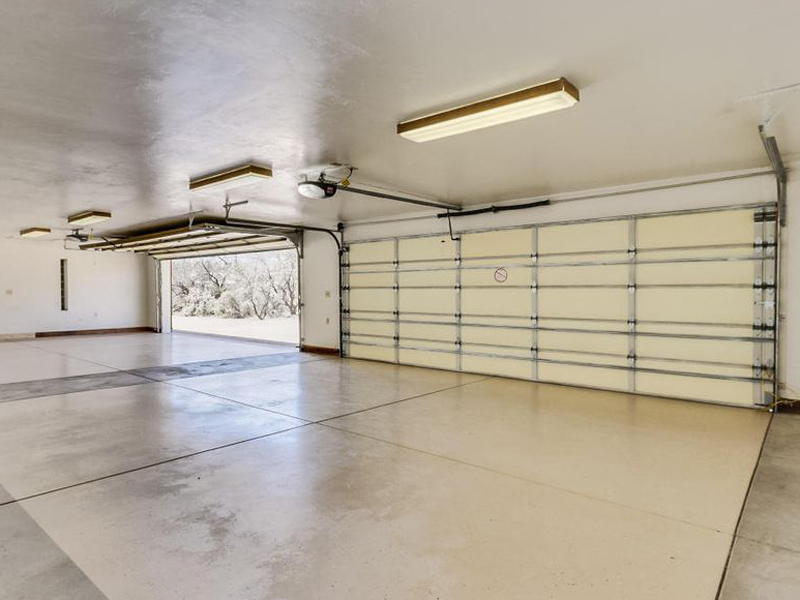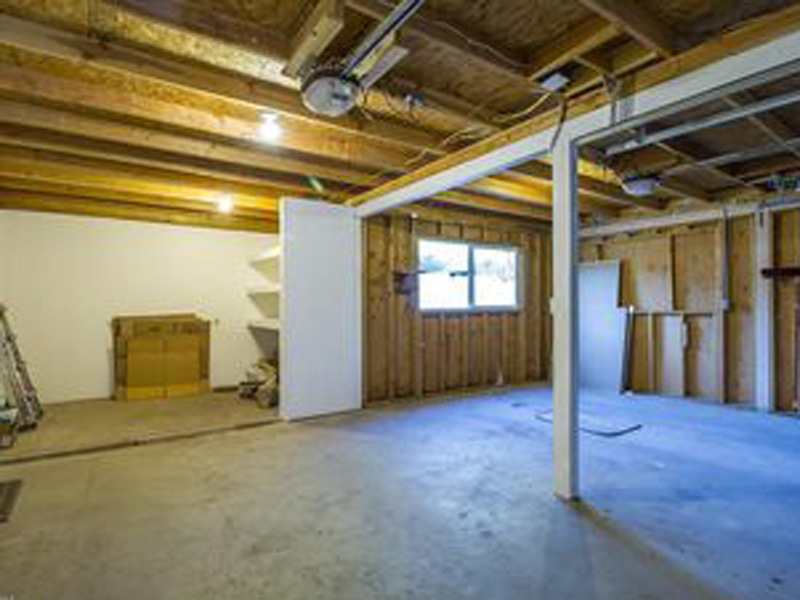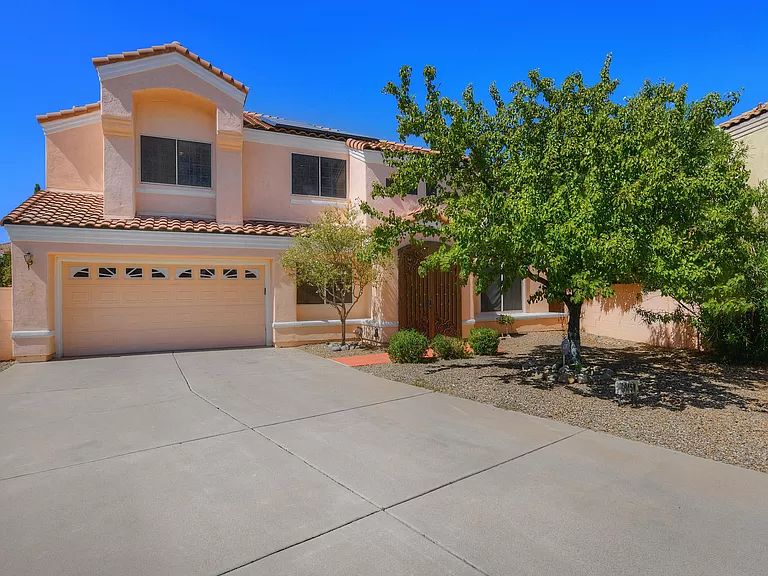Non-Working Garage Door - DIY vs Specialist Solutions
Is Your Garage Door Stuck? Below's What to Do First
When your garage door will not open, begin with these important security checks before attempting any repair services. Initially, guarantee no person is standing near the door and that automobiles are clear of the opening. Try to find evident indications of damages like broken panels, curved tracks, or hanging cable televisions. If you see a snapped spring or badly damaged elements, quit quickly and call a specialist—-- these repair services call for specific tools and knowledge to manage securely.

Check These 6 Things Prior To Calling an Expert
Before assuming you require pricey fixings, run through this quick analysis checklist that addresses most garage door problems:
-
Source of power: Verify the opener is plugged in and the electrical outlet is working
-
Remote batteries: Change dead batteries in your remote control
-
Hand-operated lock: Examine if somebody inadvertently involved the hand-operated lock
-
Blockages: Search for particles blocking the door's path or sensing units
-
Emergency launch: Make sure the red emergency cord hasn't been drawn
-
Breaker: Confirm the garage circuit hasn't stumbled
These straightforward checks deal with approximately 70% of garage door problems without requiring professional intervention.
10 Typical Factors Your Garage Door Will Not Open Up
Understanding why your garage door opener isn't working assists you choose the appropriate solution. Below are the most frequent reasons homeowners encounter:
Dead remote batteries stand for the most basic solution—-- when batteries pass away, the remote can not send out signals to the opener. Power interruptions or stumbled breakers cut power to the motor. Broken springtimes stop the door from raising correctly and need prompt specialist interest. Sensing unit imbalance reasons safety systems to block door operation. Track blockages quit rollers from moving efficiently. Motor overload triggers automated shutoffs when the opener finds resistance. Limitation switch issues confuse the opener about door placement. Wire damages interferes with the training system. Weather-related problems influence door movement throughout severe temperatures. Element wear from age gradually decreases system performance.
Issue # 1: Dead Remote Control Batteries
When your wall switch works yet your remote doesn't, dead batteries are normally the perpetrator. The majority of garage door remotes utilize either 3-volt lithium or 12-volt alkaline batteries. Get rid of the back cover of your remote and check the battery kind. Change with fresh batteries and evaluate the remote. If it still doesn't function, you may need to reprogram it to your opener. Consult your opener's handbook for particular reprogramming directions, as the process varies by manufacturer.
Problem # 2: Power Supply Issues
Garage door power problems commonly come from loosened connections or stumbled circuits. Examine that what to expect from a professional garage door service the opener is strongly plugged into its electrical outlet—-- resonance can loosen connections over time. Evaluate the electrical outlet with another tool to confirm it's functioning. Analyze your home's breaker box for tripped circuits, especially if you have actually experienced tornados or power variations. GFCI outlets might have stumbled and need resetting. If the opener has power however won't react, the problem likely lies elsewhere in the system.
Trouble # 3: Broken or Damaged Springs
Damaged garage door springtimes are among one of the most dangerous components to deal with. If you hear a loud bang from your garage or notice the door really feels extremely hefty when trying to raise manually, a spring has likely broken. Torsion springs run horizontally above the door, while expansion springtimes rest on either side. Never ever try springtime repair services on your own—-- these elements store incredible stress that can create significant injury or death. Specialist replacement usually costs $150-$300 but guarantees your safety.
Trouble # 4: Blocked Security Sensors
Modern garage doors feature safety sensors that stop closure when things are spotted. These sensing units can quit the door from opening if they're unclean, misaligned, or blocked by debris. Clean sensor lenses with a soft cloth and make certain nothing blocks the unnoticeable light beam between them. Check that sensing units are properly straightened—-- a lot of have indicator lights that reveal link status. Sensor problems typically resolve with easy cleaning and modification.
Problem # 5: Track Obstructions or Damage
Garage door tracks overview rollers as the door goes up and down. Dirt, particles, old grease, or small objects can jam the system. Inspect tracks aesthetically and remove any type of obstructions with a brush or fabric. Seek dents, flexes, or bending that could restrain smooth operation. Minor track changes are feasible for useful home owners, however considerable damage calls for professional repair work to avoid additional problems or security threats.
Trouble # 6: Garage Door Opener Electric Motor Issues
When the garage door motor runs but the door does not move, numerous issues could be accountable. The electric motor may be strained and turning off as a precaution. Gear wear, especially in older devices, can stop proper procedure. Chain or belt drive problems influence power transmission. If you listen to unusual grinding, clicking, or humming audios, quit making use of the opener quickly. Electric motor repair services usually set you back greater than replacement, especially for systems over 10 years old.
Detailed DIY Troubleshooting Guide
Follow this methodical approach to garage door fixing while prioritizing security throughout the procedure:
Action 1: Test the wall switch first. If it functions but the remote does not, focus on remote issues. If neither jobs, check power supply.
Action 2: Take a look at the manual launch cord. If it's been pulled, the opener is disengaged from the door. Push the cart back to reconnect.
Action 3: Manually check the door by disengaging the opener and attempting to lift the door by hand. It ought to move smoothly and remain in location when half-open.
Step 4: Examine visible parts for damage, paying unique focus to springtimes, wires, and tracks.
Step 5: Inspect all safety and security features including sensors, restriction buttons, and auto-reverse features.
Step 6: Examination various controls (remote, wall switch, keypad) to isolate the trouble resource.
Always use safety glasses and work handwear covers when performing assessments, and never attempt repair services on springs or high-tension parts.
When to Call a Professional vs. DIY Solutions

Recognizing when to call a garage door expert versus attempting DIY fixings secures both your safety and your budget. Handle these concerns yourself: dead remote batteries, power supply problems, small track cleaning, sensing unit cleansing and placement, and basic lubrication.
Never try these repair work yourself: springtime replacement or modification, wire repairs, significant track adjustment, electric wiring problems, opener electric motor substitute, or any type of repair involving high-tension elements. Specialist professionals have actually specialized tools, training, and insurance to take care of dangerous repair services safely.
Consider repair service prices versus replacement expenses, especially for doors over 15 years old. Modern garage doors offer much better safety attributes, power effectiveness, and dependability than older versions.
Emergency Situation Garage Door Solutions
When you're stuck to a garage door that won't open up and require prompt gain access to, adhere to these emergency situation procedures:
Manual Operation: Draw the red emergency release cable to disengage the opener. This allows hands-on procedure but requires appropriate strategy to stay clear of injury. Lift the door slowly and equally, using leg muscles instead of your back. Most property doors consider 100-150 pounds, making them convenient for many grownups.
Short-lived Solutions: If the door opens by hand yet won't keep up, prop it open with sawhorses or clamps—-- never utilize your body or automobiles as supports. For doors that will not close entirely, ensure the opening is protected if you have to leave.
Emergency situation Solution: Numerous garage door firms offer 24/7 emergency service for circumstances entailing protection concerns, caught lorries, or full system failures. While more expensive than normal solution phone calls, emergency repairs provide prompt options when needed most.
Security Warning: What NOT to Do
Garage door safety and security requires recognizing harmful fixings that should never ever be attempted by house owners:
Never ever attempt to fix springs—-- they store enough power to cause deadly injuries when they break or are poorly taken care of. Do not compel a stuck door—-- this can harm the opener, tracks, or door panels, creating more costly issues. Prevent bypassing security functions—-- sensors and auto-reverse mechanisms stop severe injuries and property damages.
Do not ignore odd noises—-- grinding, scraping, or banging sounds indicate issues that worsen with time. Never ever make use of the door if cords are torn or damaged—-- the door can fall unexpectedly. Do not attempt electric fixings unless you're a certified electrician—-- garage door openers utilize both 120V house existing and low-voltage control circuits.

Preventative Maintenance to Avoid Future Troubles
Routine garage door upkeep prevents most usual issues and extends system life expectancy dramatically:
Month-to-month Tasks: Visual examination of all parts, examining auto-reverse safety features, inspecting and tightening up equipment, and cleaning tracks and sensors.
Quarterly Tasks: Lubing all relocating parts with proper garage door lubricant, testing manual operation, and inspecting weather sealing.
Annual Jobs: Expert evaluation and tune-up, springtime change if required, and opener maintenance including belt or chain change.
Seasonal Tasks: Planning for weather condition extremes, examining insulation, and adjusting opener setups for temperature level changes.
Regular upkeep expenses far less than emergency fixings and makes sure trusted operation year-round.
Garage Door Won't Open Up Frequently Asked Questions
Why will not my garage door open with the remote however deals with the wall surface button?
This normally suggests dead remote batteries, signal interference, or the demand to reprogram the remote. Check batteries first, then consult your opener manual for reprogramming directions.
Can I by hand open my garage door if the power is out?
Yes, pull the red emergency situation release cable to disengage the opener, after that lift the door manually. Be prepared for the door's complete weight and lift with correct strategy to stay clear of injury.
Exactly how do I know if my garage door spring is broken?
Indicators consist of a loud bang from the garage, the door feeling very heavy when lifting manually, noticeable spaces in the springtime coils, or the door only opening a few inches prior to quiting.
Is it risk-free to utilize my garage door if it won't open right?
No, partial procedure suggests mechanical issues that might aggravate suddenly. Stop utilizing the door and have it inspected by a professional to avoid further damages or injury.
What should I do if my garage door opens up however will not shut?
Check security sensors for obstructions or misalignment, examine the tracks for particles, and check the auto-reverse function. If these don't solve the trouble, speak with an expert.
How much does it cost to fix a garage door that won't open?
Prices differ commonly depending upon the problem: battery substitute ($5-$10), specialist medical diagnosis ($50-$100), springtime replacement ($150-$300), or opener replacement ($200-$500).
Can weather influence my garage door's capability to open up?
Yes, severe cold can thicken lubricating substances and influence metal components, while warm can create development issues. The majority of problems deal with as temperature levels stabilize, yet persistent problems may need professional attention.
Why does my garage door open up a couple of inches then stop?
This usually indicates damaged springtimes, limit button issues, or track obstructions. The opener's safety features stop procedure when resistance is discovered, stopping damages to the electric motor or door.
Get Specialist Assist for Complicated Problems
When do it yourself repairing doesn't fix your garage door problems, expert technicians supply the know-how and devices needed for secure, enduring repair work. Qualified professionals diagnose problems properly, utilize manufacturer-approved components, and provide service warranties on their job.
Expert solutions consist of: extensive system evaluations, springtime and cable television substitute, opener repair and substitute, track positioning and substitute, electrical troubleshooting, and emergency situation service calls.
What to expect: in advance prices, certified and insured technicians, same-day solution for many fixings, and follow-up maintenance recommendations.
A lot of garage door business provide complimentary quotes for major repair services and can give immediate options for immediate problems affecting home safety or car access.
Obtaining Your Garage Door Working Again
A garage door that will not open does not need to spoil your day or damage your budget plan. Start with simple troubleshooting steps like checking power, replacing batteries, and examining for obvious blockages. Several troubles have quick do it yourself remedies that restore typical procedure within mins.
Nonetheless, recognize when expert assistance is needed—-- particularly for spring-related problems, electric issues, or complicated mechanical failings. Trying harmful repair work yourself takes the chance of severe injury and commonly creates extra expensive problems.
Routine maintenance prevents most garage door problems and makes certain trusted operation for many years to come. When problems do occur, address them promptly to prevent more costly fixings and keep your home's safety and security and benefit. Whether you need a basic battery replacement or total system overhaul, options exist to obtain your garage door working efficiently once again.